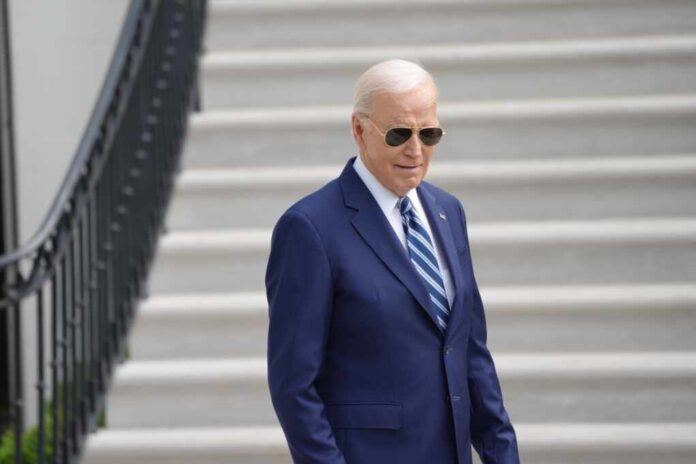
Another former Biden White House aide is grilled behind closed doors as the House Oversight Committee ramps up its probe into whether the American public was systematically misled about President Biden’s mental fitness in his final year—leaving Americans wondering just how deep this alleged cover-up rabbit hole goes.
At a Glance
- House Oversight Committee intensifies investigation into alleged Biden health cover-up following his disastrous June 2024 debate.
- Former Deputy Director of Oval Office Operations, Ashley Williams, testifies in a closed-door session amid mounting questions about staff concealment of Biden’s decline.
- The committee scrutinizes whether White House aides signed executive orders with an autopen, bypassing Biden’s direct knowledge or consent.
- White House and Democrat allies dismiss the probe as a partisan stunt, while Republicans demand transparency and accountability.
GOP Seeks Answers: Who Ran the White House?
Ashley Williams, the former Deputy Director of Oval Office Operations, quietly arrived on Capitol Hill for a closed-door interview with House investigators, joining a parade of Biden insiders now forced to answer tough questions. The House Oversight Committee, led by Chairman James Comer, wants to know if aides like Williams shielded Biden’s visible mental decline from the public and, more alarmingly, if they took it upon themselves to sign off on presidential orders—using the infamous autopen—without the President’s direct involvement. For millions of Americans who watched Biden stumble through the June 2024 debate, these questions are not about political gamesmanship; they’re about who was actually making decisions in the White House and whether the will of the people was subverted by unelected staff.
House Oversight Committee Chair, Rep. James Comer, says “It’s clear there was a conspiracy to cover up President Biden’s cognitive decline after Dr. Kevin O’Connor, Biden’s physician and family business associate, refused to answer any questions and chose to hide behind the Fifth… pic.twitter.com/MZ0Iw1RKu2
— Stephanie Myers (@_StephanieMyers) July 9, 2025
This investigation was triggered by eyewitness accounts and leaked reports suggesting that concerns about Biden’s health were an open secret among his closest aides. It’s not just Williams being called to account; a roster of former Biden confidants—Neera Tanden, Anthony Bernal, Annie Tomasini, Michael Donilon, Anita Dunn, Bruce Reed, and Steve Ricchetti—are all in the Oversight Committee’s crosshairs. The stakes? Whether the American people were kept in the dark while a handful of White House staffers and political operatives ran the executive branch from the shadows.
Watch: LIVE | Biden Cover-Up Probe Heats Up
The Autopen Scandal: Subverting Constitutional Authority?
The use of the autopen—a device that can mechanically replicate a signature—has become a hot-button issue at the center of this probe. The Committee is seeking evidence that staff may have signed executive orders or critical documents, possibly without Biden’s direct review, at times when his cognitive faculties were in question. If proven, that isn’t just bureaucratic overreach; it’s the kind of constitutional subversion that should send chills down the spine of every American who values the integrity of our highest office. The Biden team, of course, calls it a ‘political stunt’—but that’s a tired refrain every time Democrats get caught with their hands in the cookie jar.
What’s at Stake: Trust, Precedent, and the Future of Executive Power
This isn’t just about one president’s fitness for office. It’s about whether the executive branch can be hijacked by unelected staff under the pretext of “continuity,” and whether Congress has the backbone to demand real accountability. Republicans see this as a last stand for transparency and constitutional government, while Democrats accuse them of playing politics. Meanwhile, public trust in the White House continues to erode as revelations trickle out and no one in Biden’s orbit seems willing—or able—to give a straight answer.
The Committee’s work may set new precedents for how presidential health is disclosed and how staff authority is policed during periods of incapacity. Proposed reforms could require stricter documentation of executive decisions and more oversight of those who wield the pen—autopen or otherwise. For now, the American public is left watching a parade of former aides shuffle into closed-door hearings, wondering whether the truth will finally come out or if this will be just another Beltway whitewash.

























